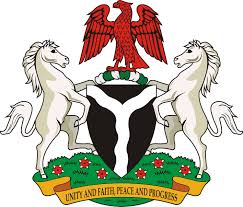AN URGENT CASE FOR REFORM OF POLICE AND STATE SECURITY OPERATIONS IN NIGERIA
Policing Nigeria seems to be getting harder for the Nigeria Police Force (NPF) due to the misguided agendas of the politicians who seem bent on destroying whatever is left of the operational effectiveness of the police. The NPF has been under attack since the mid-70s when the military administration, removed the Special Branch out of the Force and made it a separate independent organisation. The Special Branch later became the NSO during Shagari administration and then changed its name to the SSS of today.
Although its powers and operations are defined by laws, the practical operation of the police is affected by the political and socio-economic interests of the governing elite and political groups in Nigeria.
police is affected by the political and socio-economic interests of the governing elite and political groups in Nigeria.
The 1999 Constitution of the Federal Republic of Nigeria in section 214 (1) states that:
“There shall be a Police Force for Nigeria, which shall be known as the Nigeria Police Force and subject to the provisions of this section, no other Police Force shall be established for the Federation or any part thereof”.
Section 214 (2)(a) empowers the National Assembly to produce an Act to organise and administer the details of police operations in Nigeria in ways that protects the constitutional rights of Nigerians. This is known as the Police Act. First enacted in 1943, it has been reviewed by the legislature in 1967 and 1979. A new review is being planned by the National Assembly.
This constitutional provision makes it unconstitutional for either the government of the states or even the federal government to establish a parallel police service in competition to the Nigeria police Force. This has however not stopped the Federal government from establishing additional investigatory and enforcement institutions, even though they have not called any of them ‘police’.

Many in government agree that the Nigerian government seem to be in breach of the spirit of the constitution if not the letter of it. By not calling these parallel agencies “police” the government seem to say they have stayed within the provisions of the law. But with these agencies having powers similar to that of the police and taking over functions and duties performed by the police, it can be argued that if it looks like a dog, barks like a dog, walks like a dog, then it is a dog.
These agencies perform policing duties, hence it can be argued that they are police in practice if not in names. But nobody has yet litigated this fact by taking the government to a court of competent jurisdiction over it. Examples of these additional agencies are:
- The Federal Road Safety Commission (FRSC)
- The Economic and Financial Crime Commission (EFCC)
- The Independent Corrupt Practices Commission (ICPC)
- The National Security and Civil Defence Corps (NSCDC)
- The Code of Conduct Bureau (CCB)
- Vehicle Inspection Office (VIO)
- State Security Service (SSS)
- National Drug Law Enforcement Agency (NDLEA)
For instance, the CCT has not led to accelerated hearings of misconduct cases, hence there is doubt as to its continued existence.
Most in the Police believe the plethora of agencies, many with overlapping powers, and duplicated duties have led to the weakening of the main police force as a result of talent flight to these new agencies and reduction in police funding, as funds are allocated to these additional agencies.
The main police force is then left to do the heavy lifting task of crime prevention and investigation with fewer resources to do the job. These policing related agencies consume a lot of resources and many believe overwhelmingly they are inefficient and incoherent in operational agility. These many policing agencies stretches the budget of the government to the detriment of the NPF. We are now in a situation where the Federal government only manages to pay the emoluments of the police officers and barely nothing else is available for equipment, training etc, thus the operational funding of the police now largely come from the goodwill of the respective state governments. As a result, a multi-tier police is emerging. With states like Lagos able to better support the police and others like Adamawa doing much less. If this trend continues; the federal government will lose its moral right to a federal police structure it cannot afford to fund.
From nowhere, President Obasanjo created the Civil Defence corps and put his sympathisers in it. Billions of naira were spent establishing this group to perform duties meant for the Nigeria Police constitutionally. Few people see any value this group brought to the nation. But in the meantime, Billions meant for the Police has now been diverted to another agency created by politicians.
 Given the foregoing, one will wonder why the National Assembly is now creating another paramilitary group called the Peace Corps. It does not make sense. That will make it the ninth agency to be created to perform a traditional police function. If this Peace Corps bill is finally passed by the National Assembly, Nigeria will now have TEN organisations performing policing duties; including the main NPF itself. This is madness.
Given the foregoing, one will wonder why the National Assembly is now creating another paramilitary group called the Peace Corps. It does not make sense. That will make it the ninth agency to be created to perform a traditional police function. If this Peace Corps bill is finally passed by the National Assembly, Nigeria will now have TEN organisations performing policing duties; including the main NPF itself. This is madness.
Effective policing in most countries is made of a unified police body that has specialist units within it to focus on special areas of security interests, but all under the same command and control system and sharing unified databases for joined up intelligence-led policing. Instead of this, Nigeria seems to be creating more policing agencies and inevitable confusion of roles, duplicated responsibility; unclear hierarchy of power amongst them and financial dissipation that makes the NPF suffer under little or no funding.
With the Peace corps, we have Ten policing organisations, Ten Back-office departments and cost centres, Ten databases, ten operational procedures and intelligence systems and a massively confused citizenry who are now not sure who to call on amongst all these policing agencies. In all countries I know of if a civil servant steals; you call the police. In Nigeria, we created the ICPC. Why? With these kaleidoscope of policing organisations, you also have Ten prosecuting agencies for relatively similar crimes. This creates multiple prosecution standards and inconsistent prosecutorial decisions.
In the end, it seems the politicians are only interested in creating power bases for themselves in the security sector of the country. This is to aid their manipulation of our laws and impunity in political activities. The solution is to unify all these agencies under the NPF, strengthen our police, fund them better and demand better outcomes accordingly.
 The trend globally in the security sector is to join-up activities of different agencies and reduce their number to the barest minimum. We seem to be going in the opposite direction. You can finish serving a jail sentence for robbery in Niger state and travel to Lagos the next day to join the Police. There is no national database of criminals in Nigeria. The system relies on the honesty of applicants to declare their own past convictions. In fact, there is no State-wide database of criminals in any state. All we have is a state-wide record of cases, not criminals. And this is mainly manual when it exists. So if there is no joined-up operation within the police as a result of a paucity of funds and historical neglect; how much more between the police of all these other policing organisations. It will not be a surprise if a good number of our police officers are ex-convicts and others unfit to hold such vital roles.
The trend globally in the security sector is to join-up activities of different agencies and reduce their number to the barest minimum. We seem to be going in the opposite direction. You can finish serving a jail sentence for robbery in Niger state and travel to Lagos the next day to join the Police. There is no national database of criminals in Nigeria. The system relies on the honesty of applicants to declare their own past convictions. In fact, there is no State-wide database of criminals in any state. All we have is a state-wide record of cases, not criminals. And this is mainly manual when it exists. So if there is no joined-up operation within the police as a result of a paucity of funds and historical neglect; how much more between the police of all these other policing organisations. It will not be a surprise if a good number of our police officers are ex-convicts and others unfit to hold such vital roles.
Historically, while the military invested and modernise themselves infrastructure wise when they were in power, the police was deliberately underfunded and neglected. So the continuing negative public perception of the role and capacity of the police is a major source of concern in a democracy. Hence the NPF remain the most misunderstood profession by the general public in Nigeria. Many expect them to work magic despite the limitations and massive constraints of their tools and service conditions. Their performance is weighed with misconception and ignorance, resulting in an out of context assessment of their activities.
Ignorance of the inner workings of the police and the penchant for secrecy by the Nigeria police had led to little public confidence in the service by Nigerians, plenty of misconception and depleted public support and cooperation with the police. These challenges are being exacerbated by the plethora of policing agencies created by the politicians. These other agencies create a capacity problem for the police and dilute the funding available to the NPF. In my opinion; it is now time we create a unified security platform in Nigeria under the leadership of the NPF as the only constitutionally empowered civil security organisation. Train them, strengthen them, support them and see a new security landscape emerge that we all can be proud of.
The NPF as presently crafted and treated by the politicians is set up to fail. We need the leadership of the National Assembly to see the need for a joined-up security infrastructure and unified command and control. Creating the Peace Corps must be abandoned and the funds meant for it given to the NPF to strengthen its numbers and operational tools. God bless Nigeria.



